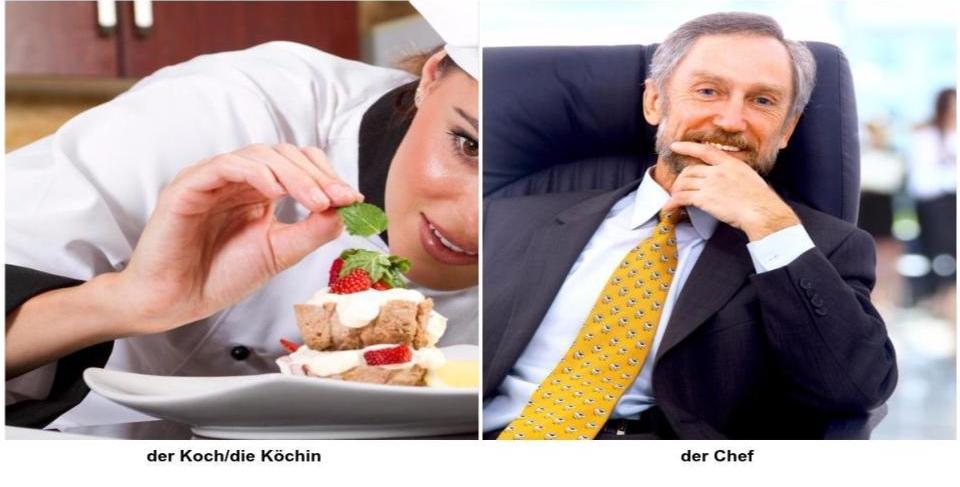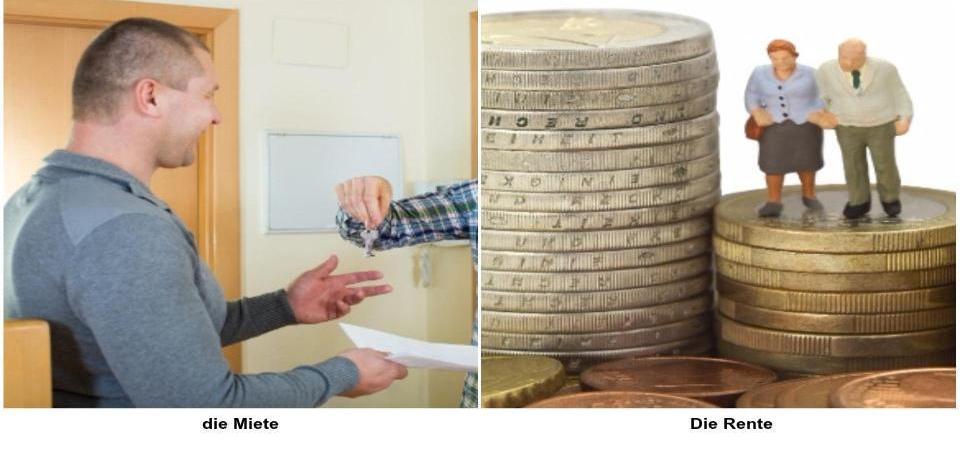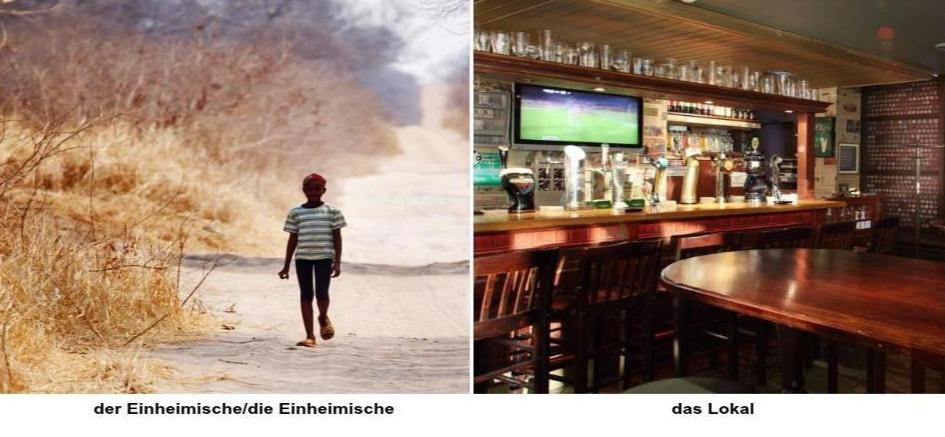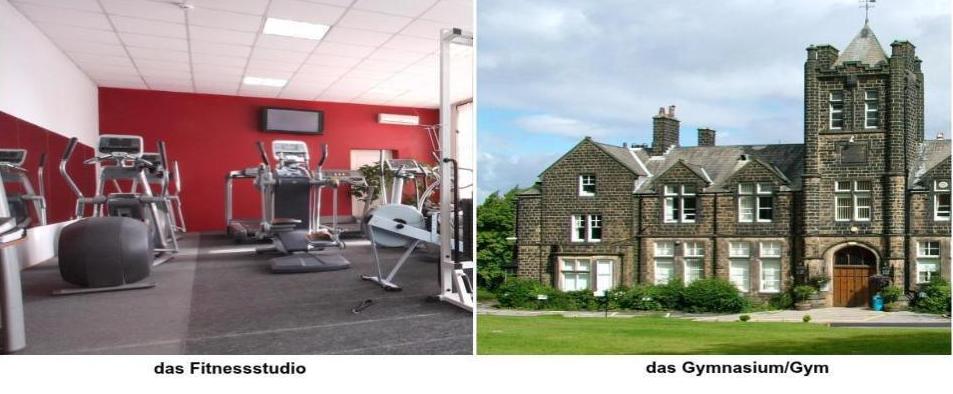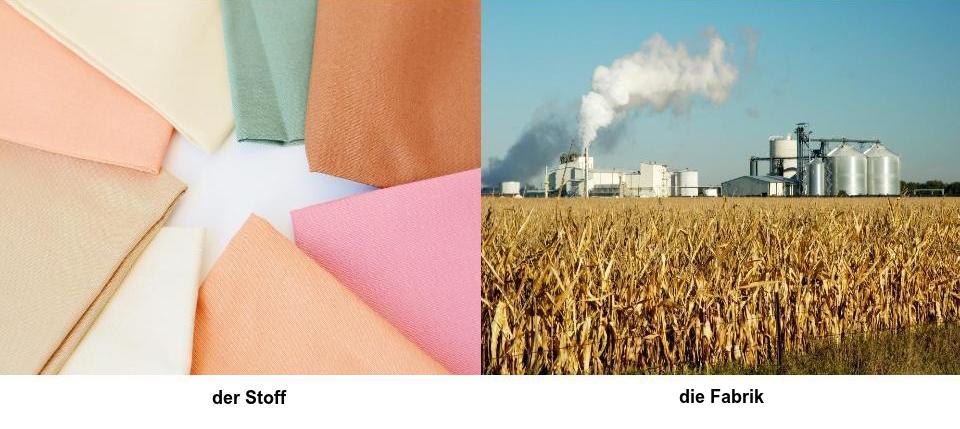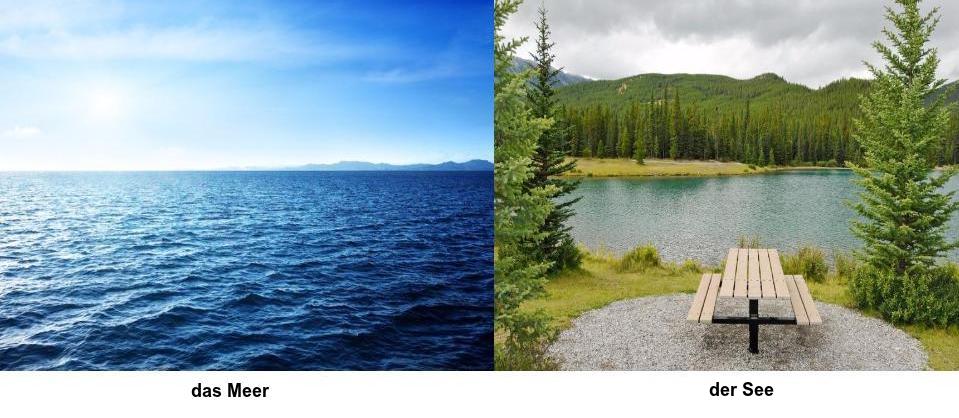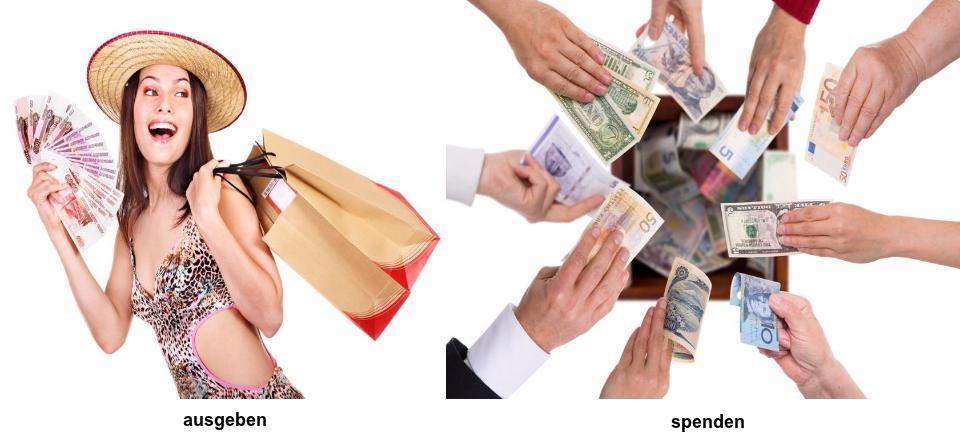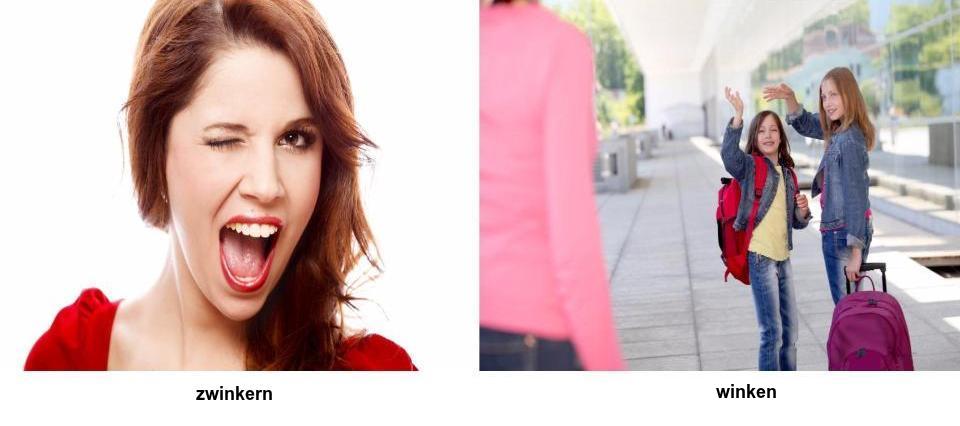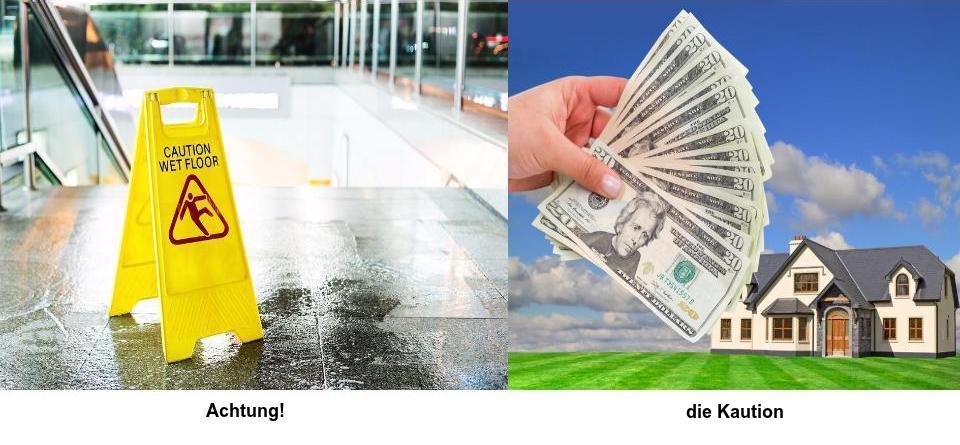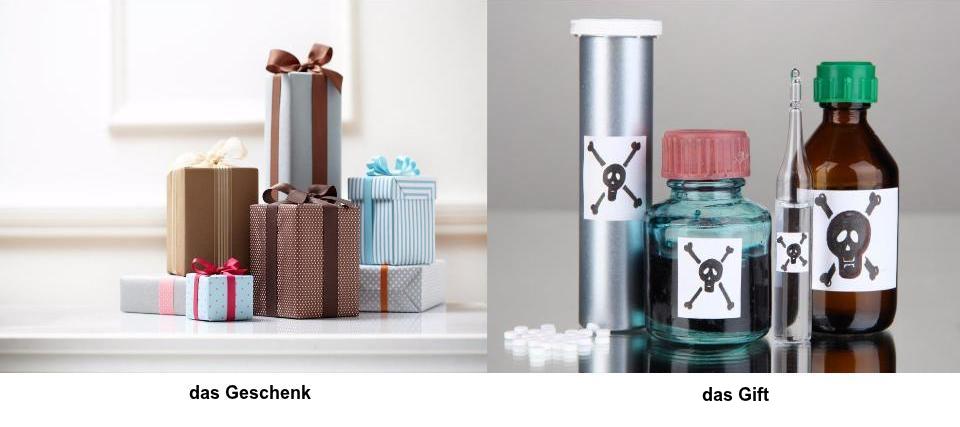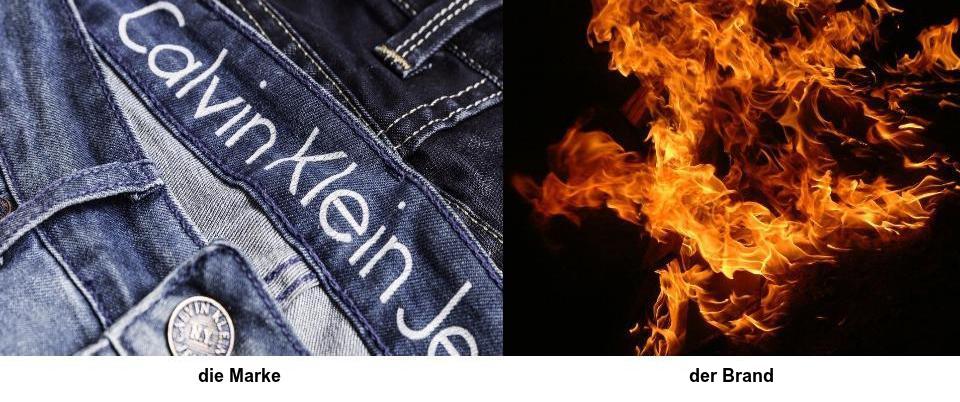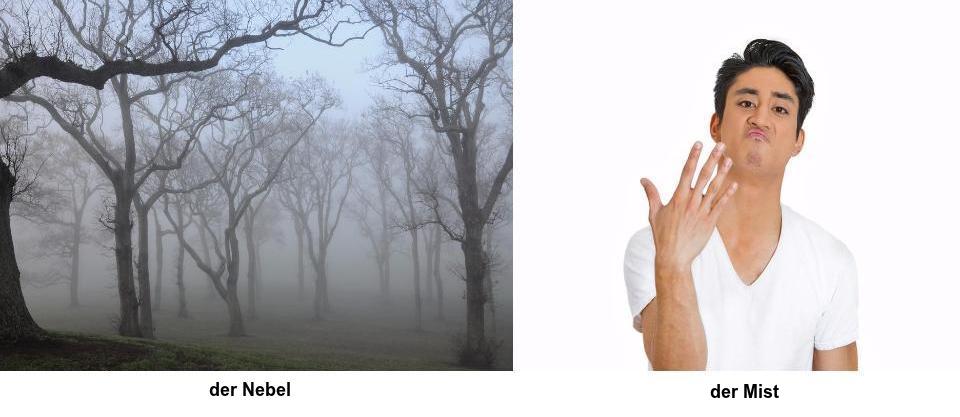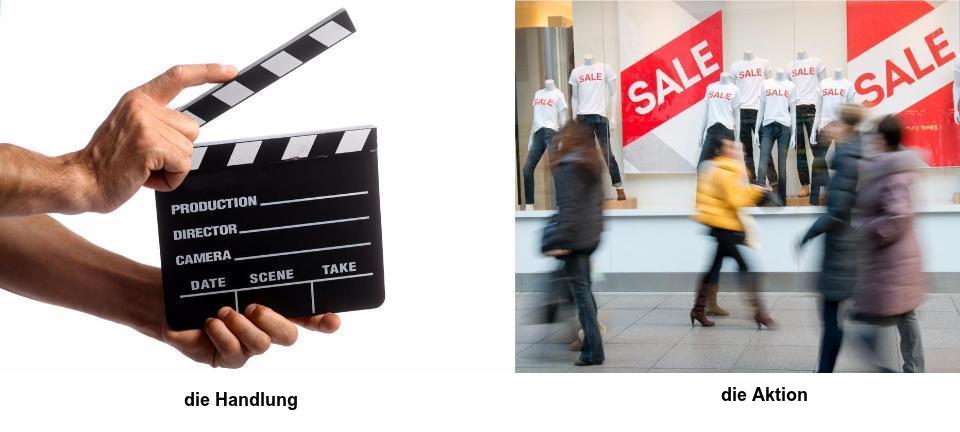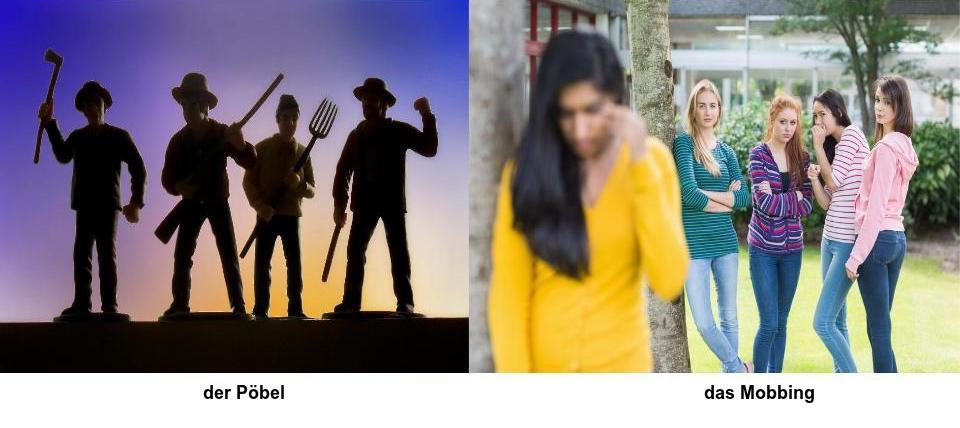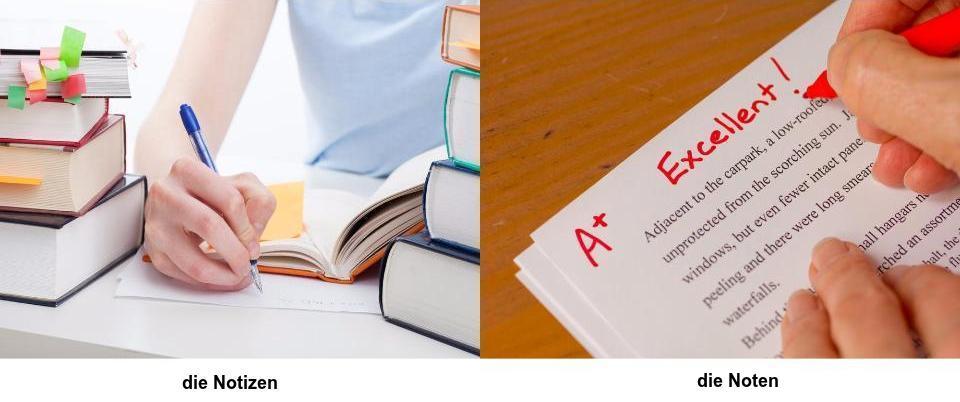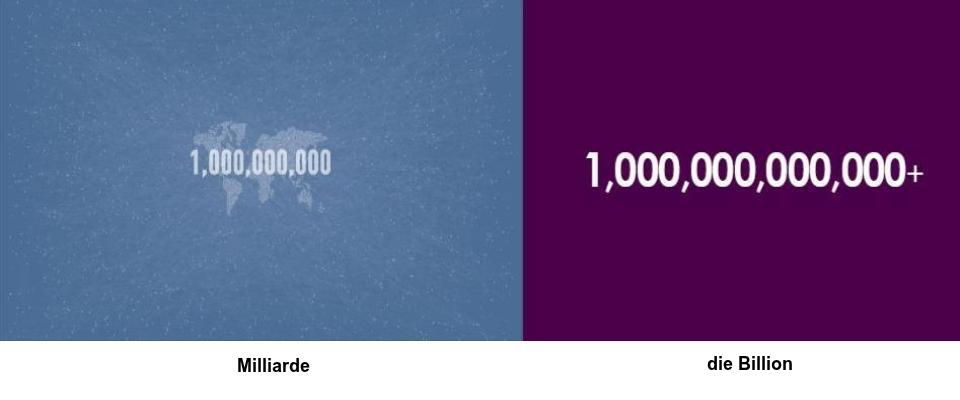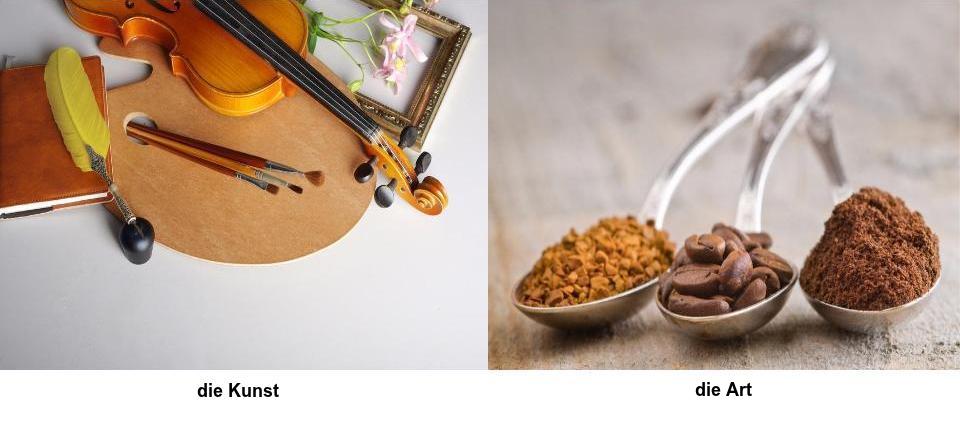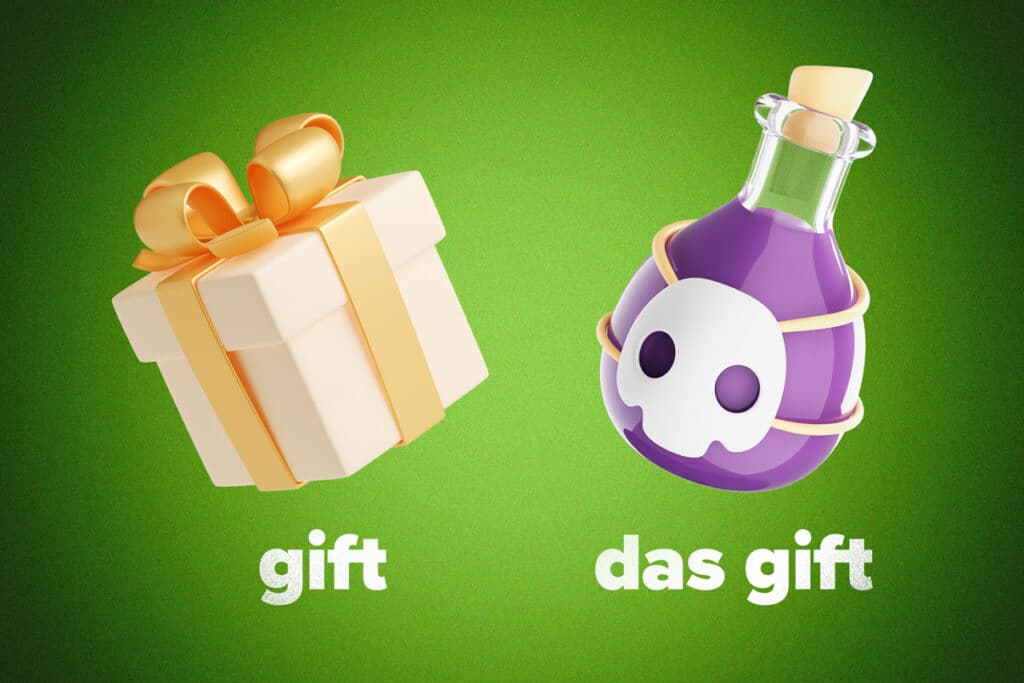
Have You Been Fooled by These 19 Sneaky German-English False Friends?
Have you ever found your German friendship cut surprisingly short after you offer them a Gift? Or perhaps you’ve wondered why people curse the Mist when they drop something.
In German, Gift actually means “poison,” and Mist means “crap.” These sneaky words are called false friends.
In this post, I’ll teach you 19 common German-English false friends to help you avoid embarrassing situations.
Contents
- What Are German False Friends?
- How to Learn German-English False Friends
- 1. Der Chef
- 2. Die Rente
- 3. Das Lokal
- 4. Das Gymnasium / Das Gym
- 5. Die Hochschule
- 6. Die Fabrik
- 7. Der See
- 8. spenden
- 9. winken
- 10. bekommen
- 11. Die Kaution
- 12. Das Gift
- 13. Der Brand
- 14. Der Mist
- 15. Die Aktion
- 16. Das Mobbing
- 17. Die Noten
- 18. Die Billion
- 19. Die Art
- And One More Thing...
Download: This blog post is available as a convenient and portable PDF that you can take anywhere. Click here to get a copy. (Download)
What Are German False Friends?
While a lot of German compound nouns seem to at least try and lead us in the right direction, there are equally a Tonne of German words that seem to be deliberately trying to lure you off the beaten path.
These tricksters are what we call false friends—words that appear to be English-German cognates. But while these Wörter (words) may initially look the same as their English counterparts, they can actually end up having widely different meanings.
This can naturally lead to sticky situations, where you may end up with an embarrassing Missverständnis (misunderstanding), or worse, end up in the wrong place entirely.
A good example is the Rat problem. If we go back to our reliance on compound words, you may be slightly bewildered to find a Rathaus in most German districts and towns, or to have a loyal friend offering you some Rat while at the dinner table. A medieval tradition of houses crawling with rats? A Bavarian tea-time delicacy? Don’t run for the hills screaming the plague yet.
The word Rat in German actually translates as “advice” or “council,” leading to the word Rathaus meaning “town hall.” The actual word for a “rat” is the similar, but with a distinctive extra syllable, die Ratte.
So there we have an easily correctable example of a direct false cognate, but they certainly get more difficult to tackle as you learn more and more words. The toughest part with German false friends, as opposed to other languages like French or Spanish, is that they will often be written exactly the same as their English counterparts. This can make them all the more important to commit to memory, especially when the definitions are closer than our previous rodent example.
How to Learn German-English False Friends
But how do you go about learning these misleading phrases when they all look so similar to—or downright exactly the same as—other English words?
A good technique when learning the German word is to totally disconnect it from its seeming English counterpart. You can do this by the saying the word in an exaggerated German accent when pronouncing it. So instead of the saying “Rat,” try saying “der Rah-tt,” with added emphasis on the ah sound and the article der for good measure.
Now that you’re prepared for these shifty words, here’s a list of the most common German-English false friends to watch out for. This list is natürlich (naturally) not exhaustive, but will certainly help you avoid the most devilish of falsche Freunde (false friends).
1. Der Chef
What it looks like: chef
What it means: boss/manager
You might be tempted, after a good Currywurst, to send your compliments to the Chef. But this would instead send a well-down to the manager, rather than the person who actually cooked it for you.
The actual word for a “chef” in German comes from the verb “to cook,” kochen. So we end up with der Koch / die Köchin.
2. Die Rente
What it looks like: rent
What it means: pension
These words both have to do with money, but only the English “rent” describes a form of paying out. The Germans are much more pleased to hear this word than we Anglos, as their Rente refers to what elderly citizens receive when they retire—a pension. This is where the noun— der Rentner —comes from, a pensioner.
The word to use with your landlord for “rent” is actually die Miete.
3. Das Lokal
What it looks like: local
What it means: pub/restaurant
If somebody asks you where to find a Lokal in your town or city, you might want to point to yourself or any of the number of people surrounding you. However the questioner isn’t asking the arduous task of you to point out everyone that lives there, but rather asking for a pub or restaurant.
The word to talk about a local person is der Einheimische / die Einheimische (male and female, respectively).
4. Das Gymnasium / Das Gym
What it looks like: gym
What it means: grammar school
You may find it strange to hear that a lot of German youths spend a lot of their days in the Gymnasium. And nope, they’re not training those muscles, but rather their brains.
Gymnasium refers to one of the schooling options in the German tri-part schooling system, which splits off more academically gifted students from more practically skilled ones. The word Gymnasium roughly translates therefore as “grammar school.”
The real word for a “gym” in German is the clunky sounding das Fitnessstudio. Most Germans will simply say however, Ich gehe zum Sport (literally: “I am going to the sport”) as a way of expressing that they’re going to the gym.
5. Die Hochschule
What it looks like: high school
What it means: college/university
The educational confusions continue with this one. The German tri-part school system leads most students off to a Hochschule, but American students go from high school to college.
The German word Hochschule is simply another word used to describe die Universität (college/university).
As we see in the Gymnasium example, it is difficult to pinpoint the word “high school” or “secondary school” in German. More often, German speakers will refer to the specific type of school they are in, for example a Gymnasium (a grammar school) or an Oberstufe (comprehensive school).
You can, however, also use words like die Mittelschule or die Sekundarschule to describe the schools for the high school age range.
6. Die Fabrik
What it looks like: fabric
What it means: factory
For Germans, a Fabrik is an industrial place of work. Whereas to us English speakers a piece of fabric sounds like it would be host to rather cramped working conditions. This is because a Fabrik in German is one of those big grey things we call a “factory.”
The real word for “fabric” in German is der Stoff. (And das Stoffstück for a piece thereof.)
7. Der See
What it looks like: sea
What it means: tranquil lake
Your trip to the nearest See with your German friends will still end up in water, but rather in the less salty kind. You see, the word der See, in German refers to a tranquil lake, not the jolly seaside waves you might be expecting.
However this is where the false friends get really tricky, as when you change the word to its feminine form, die See , you are now referring to the ocean. This is one example where knowing those genders and cases would come in handy. To talk about the seaside, stick with das Meer.
8. spenden
What it looks like: to spend
What it means: to donate
Careful what you do with your money here, as if you use the verb spenden, you won’t get much in return other than an empty Brieftasche (wallet) and an unexpected warm-fuzzy feeling.
This is because in German the verb spenden is related to the noun die Spende , meaning “donation.” So if you’re going shopping and really want those shiny new Lederhose, be sure to use the separable verb ausgeben (to spend) to use your Geld (money) more wisely.
The differences can seem quite subtle at first, so it’s best to learn these vocabulary in context! For example, FluentU teaches you German vocabulary through plenty of example videos and sentences.
FluentU takes authentic videos—like music videos, movie trailers, news and inspiring talks—and turns them into personalized language learning lessons.
You can try FluentU for free for 2 weeks. Check out the website or download the iOS app or Android app.
P.S. Click here to take advantage of our current sale! (Expires at the end of this month.)
9. winken
What it looks like: to wink
What it means: to wave
“The tearful Gretchen finally bid her brother Hanzel goodbye. Throwing her tatty, red satchel over her shoulder, she made her way off back into the woods. She turned back for one last look to see Hanzel giving her a final, sombre wink…”
Weird.
While not as widely different as some of the examples in this article, it can still certainly lead to a raised eyebrow or two. The verb winken in German does not mean the quick action we make with our eyes to indicate a certain knowing-ness between two people. (Or simply to flirt with someone.)
It instead refers to the much simpler action of waving.
To wave at somebody in German, we simply make the verb separable by adding the prefix zu- and putting the person you’re waving at in the dative case.
Ich winke ihr zu. (I wave at her.)
Sie winkte mir zu. (She waved at me)
So be safe in the knowledge that waving as a form of greeting does exist in German speaking cultures. They’re not just a nation of eye-twitchers.
If you do need to give somebody a cheeky wink though, use the verb zwinkern . Using the same construction above, you can successfully wink at somebody.
Sie zwinkert dem Mädchen zu. (She winks at the girl.)
Look here for some more fairytale goodness to vamp up your German reading.
10. bekommen
What it looks like: to become
What it means: to receive/get
This common verb is certainly one to have under your belt. At first glance it looks like a friendly cognate of the English word “to become,” but it actually means to receive or to get.
This leads to a lot of strange situations where a caterpillar somehow receives a beautiful butterfly. Don’t ask me how you’d send one of those in the mail.
This is a false friend that even German natives learning English stumble over too. You will often hear the mistake, “He becomes a lot of money” from German school children.
The verb “to become” in German is the same one we use to construct the future tense: werden.
11. Die Kaution
What it looks like: caution
What it means: security deposit (for an apartment) or juridicial bail
Putting up a trip-hazard sign with the heading Kaution would leave most Germans bemused at best. Kaution actually translates to a security deposit for an apartment or juridical bail.
Best not to ask German speakers to temporarily deposit their stable-footedness when walking along somewhere. Just use the real word for “caution” instead: Achtung!
12. Das Gift
What it looks like: gift
What it means: poison/toxin
As mentioned before, buying your German bestie a Gift for their birthday might cause a rather tragic end to the festivities. This is certainly one to be aware of as das Gift in German means “poison” or “toxin.” Maybe you should’ve just stuck with a card…
The 100% arsenic-free word for “present” in German is das Geschenk.
13. Der Brand
What it looks like: brand
What it means: fire (n.)
Similar to the previous entry, this false friend presents us with what seems to be a harmless English-German cognate. However, these assumptions all go up in smoke when you realize that der Brand means “the fire” in English. That’s a brand launch party you certainly wouldn’t want to attend.
The word you’re looking for to describe a person or company’s brand is die Marke.
14. Der Mist
What it looks like: mist
What it means: rubbish; oh crap!
As mentioned in the opening, it might seem suspicious when you see a German curse Mist to express annoyance. You are correct to question this, as Mist doesn’t refer to the condensing water that clouds up the air around us. It in fact literally means “rubbish.”
In German it’s used as an expletive, translating here better as “damn!,” “bother!” or “crap!” The word isn’t deemed as rude however, so feel free to curse this murky type of weather to your heart’s content.
So when asked what the weather’s like outside, instead of describing a heap of crap or tripe, you’d better describe der Nebel (mist/fog) or how nebelig (misty/foggy) it is.
15. Die Aktion
What it looks like: action
What it means: retail store with a sale / political demonstration
Be careful when using die Aktion to describe your favorite blockbuster. Die Aktion in German can refer to a number of things, from a retail store having an Aktion (discount/sale), to a political demonstration or movement.
The word can mean action, but is more commonly used in the aforementioned examples. When talking about a film we might talk more about die Handlung (the plot or happenings) or to say it’s action-packed, call it rasant.
16. Das Mobbing
What it looks like: mob
What it means: bullying
It might frighten you slightly to see the posters against Mobbing in German schools. But fear not, your nightmares of jump-rope wielding mini gangsters aren’t coming to life just yet. Das Mobbing is simply the word German speakers use to mean bullying.
To describe a rowdy or intimidating group of people, you’d use the word der Pöbel (mob). Or if you’re describing the action “to mob somebody,” make use of the verb angreifen.
17. Die Noten
What it looks like: note
What it means: grade
Still on the topic if schools, if you asked your teacher in Germany for a copy of yesterday’s Noten, they’d likely give you a strange look and say that there wasn’t a test yesterday. That and a detention for talking out of turn…
That’s because the word for notes in German, the kind of notes that you write down during a class or otherwise, is deceivingly close to the word for grades. Die Noten refers to the level or grades you score in a class or on a test. It’s die Notizen (notes) you want to ask for if you need the notes from last lesson. Entschuldigung (sorry), sir.
18. Die Billion
What it looks like: billion
What it means: trillion
Let’s move on to geography class. A simple question: How many people populate the earth? Knapp über acht Billionen natürlich! (Just over eight Billionen of course!)
But this wouldn’t result in the teacher’s pet award you’re going for, but rather the title of class clown. You’ve just estimated the world’s population at just over eight trillion people.
The word Million is thankfully a German-English cognate. They both refer to the number 1,000,000. But after that, it gets confusing^12.
The English word “billion” (1,000,000,000) in German is Milliarde.
But confusingly the German word for the English “trillion” (1,000,000,000,000) happens to be Billion. Do the math…
19. Die Art
What it looks like: art
What it means: kind/sort/type
Schools seem to be a hot spot for these false friends; this time we’re in the art department.
This is where you might expect the seeming cognate die Art to appear, but you’d be unlikely to find it anywhere. Instead you’d find die Kunst , which is the German word for “art.” This word comes from the word’s original meaning (man-made or artificial), which you find in words like der Kunststoff which refers to plastics or synthetic materials.
The word die Art is actually used in classification, meaning the kind, sort, type. The phrase die Art und Weise comes from this word as well, which means a method, manner or way of doing something.
So there you have the top German-English false friends to watch out for. With this handy guide, we know you won’t let those sneaky guys trick you—not even a Gift!
Download: This blog post is available as a convenient and portable PDF that you can take anywhere. Click here to get a copy. (Download)
And One More Thing...
Want to know the key to learning German effectively?
It's using the right content and tools, like FluentU has to offer! Browse hundreds of videos, take endless quizzes and master the German language faster than you've ever imagine!
Watching a fun video, but having trouble understanding it? FluentU brings native videos within reach with interactive subtitles.
You can tap on any word to look it up instantly. Every definition has examples that have been written to help you understand how the word is used. If you see an interesting word you don't know, you can add it to a vocabulary list.
And FluentU isn't just for watching videos. It's a complete platform for learning. It's designed to effectively teach you all the vocabulary from any video. Swipe left or right to see more examples of the word you're on.
The best part is that FluentU keeps track of the vocabulary that you're learning, and gives you extra practice with difficult words. It'll even remind you when it’s time to review what you’ve learned.
Start using the FluentU website on your computer or tablet or, better yet, download the FluentU app from the iTunes or Google Play store. Click here to take advantage of our current sale! (Expires at the end of this month.)
